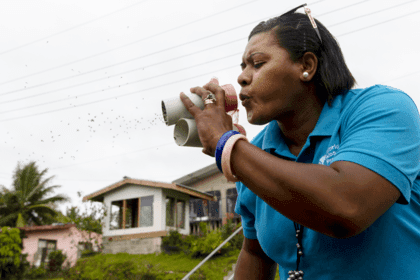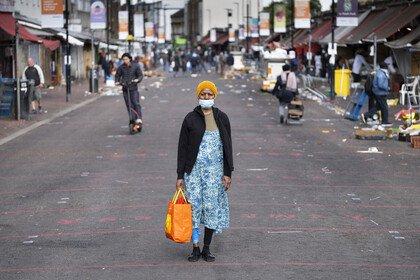
How Covid-19 has increased the world’s trust in science
It seems the pandemic has boosted trust in science and scientists, according to the Wellcome Global Monitor 2020: Covid-19 report.
The latest survey was conducted at a time that brought science directly into people’s lives. And globally, those who said they trust scientists ‘a lot’ has risen from 34% in 2018 to 43% by the end of 2020.
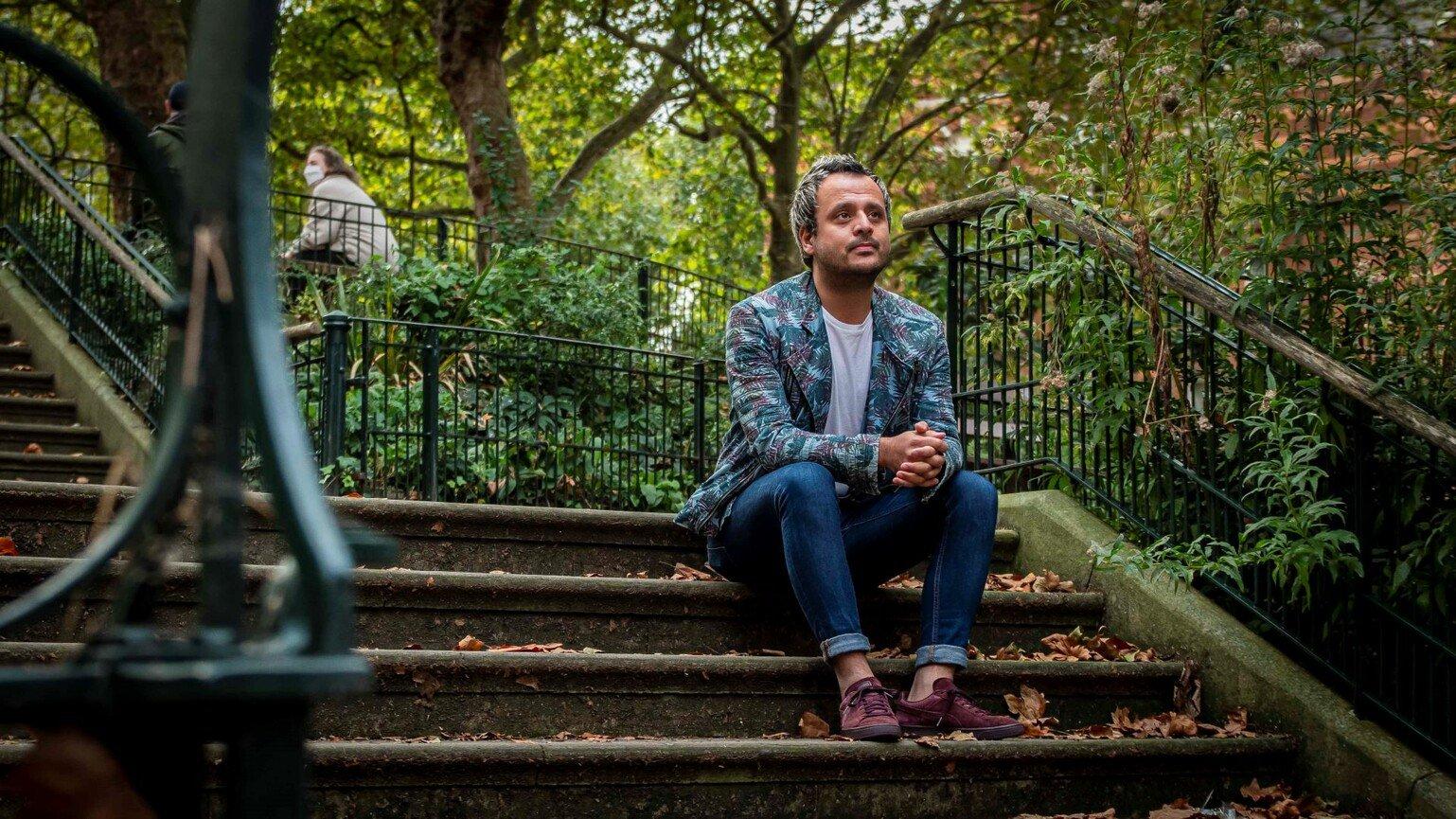
Harun Tulunay
Following these findings from the Wellcome Global Monitor 2020, we interviewed people in four countries – Germany, Indonesia, the UK and the USA – to hear about their trust in science.
Pressing play on the video above will set a third-party cookie. Please read our cookie policy for more information.
Ashley: Scientists are here to help and protect us, and I need to trust science rather than focusing on the government and how they handled it.
Amelia: Because what we're dealing with is a virus that's invisible, scientific data revealed by science is what we should believe in even more.
Clemente: I had always been believing in scientific developments. Science helps us to research, to corroborate, and to find ways to fight a particular disease. And I know that I can trust them even more now.
Jamie: I have taken care of a lot of Covid patients. Everything was happening so fast. That made interpreting scientific data very difficult. We try to practice the best that we can with evidence-based medicine.
Tim: The current situation has inspired us that with very little time, by working collectively, we can achieve groundbreaking solutions and innovations.
Trust in science is important. Public health outcomes cannot be achieved without trust. No matter how exciting the treatment, how clever the delivery method, or how robust the science, there will be no impact unless the local community is open to it.
For many people, Covid-19 has highlighted the role of science in fighting disease around the world. Like Clemente Leon, originally from Mexico, who says that his views of science have solidified over the course of the pandemic.
“My opinion about scientific advances after the pandemic have become stronger, and I know that I can trust them even more now,” he says.
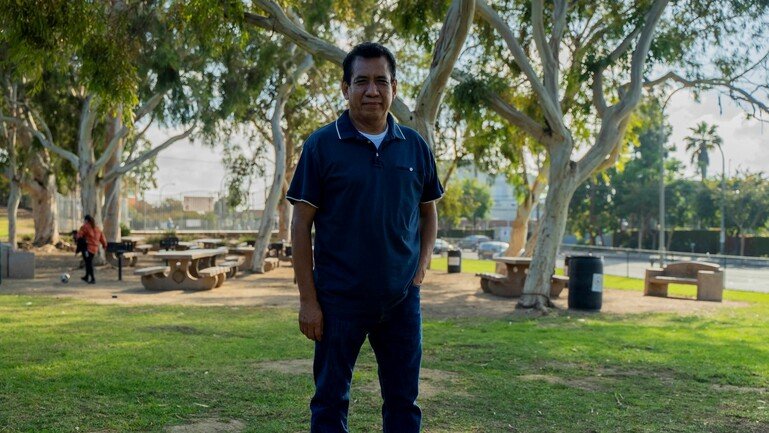
Clemente Leon
Clemente now lives in the USA, where he feels most of the local community “doesn’t believe science”.
“Before the pandemic, I had always been a person who believes in scientific developments, in scientific studies and all the research that scientists do, because science helps us to research, to corroborate and to find ways to fight X [a particular] disease,” he adds.
Ashley Adams, a production sound assistant from California shares Clemente’s views. “Before Covid I... trusted that what my doctor, what the CDC (Centres for Disease Control and Prevention) was telling us was truthful. I had no reason really to question it,” she says.
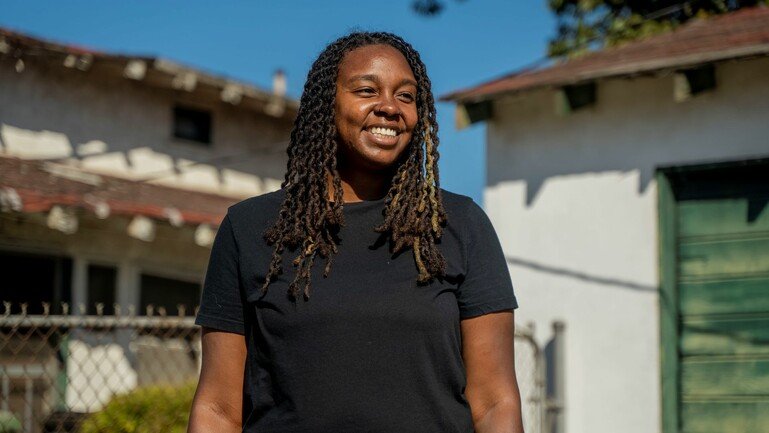
Ashley Adams
But for Ashley, the pandemic made her question how the government was using the scientific data. “During Covid, I saw the way that specifically the United States was handling it. I felt like I couldn't trust a lot of the things that were being said.”
“I definitely wavered and ultimately it came down to scientists that are here to do their job. They are here to help and protect us, and I need to trust science rather than focusing on the government and how they handled it.”
Ashley’s views mirror findings in the Wellcome Global Monitor 2020.
In the United States, just over 1 in 10 people surveyed said that they trusted their government ‘a lot’ while more than 5 in 10 reported ‘a lot’ of trust in the country's scientists.
"The majority of society do not believe that the virus exists"
Indonesia became the global epicentre of the pandemic in July and August 2021. For the Indonesian government, one of the toughest challenges has been convincing people that coronavirus exists.
The Wellcome Global Monitor 2020 found that people in Indonesia show the same levels of trust in their country’s scientists as they do their traditional healers. With 12% and 13% respectively saying they trust these groups ‘a lot’.
“The scientific approach is not accepted by society because the majority of society do not believe that the virus exists,” says Sudarmono Djoko Nugroho from Jakarta, who acts as the local Ketua Rukun Warga (Head of the Citizen Association/Community Unit) as part of the Indonesian Governing Administration.
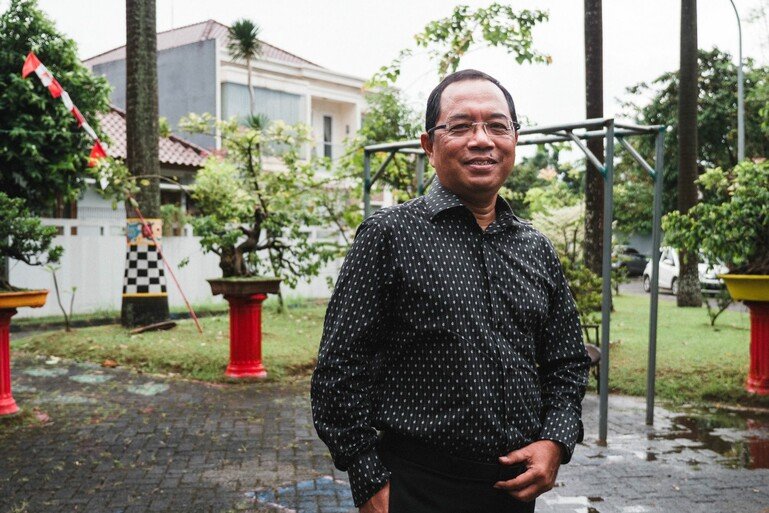
Sudarmono Djoko Nugroho
Sudarmono believes that it took the summer wave for most people to finally recognise the risk of the virus. “In June-July, panic occurs in all elements of society,” he says. “Because of what? Hospitals are full. Patients' beds are even placed in hospital front yards. Not only in the ward. Not only in the hallway. Outside.”
For many people, seeing is believing.
Over the course of the pandemic, scientists have become more prominent in the media in many countries, providing information and guidance that has affected the day-to-day lives of countless people.
Yet, for some, this isn’t the first time they’ve encountered how science can combat an emerging epidemic.
"I am a huge believer in science"
Harun Tulunay, based in the UK, credits his experience with HIV as helping him throughout the pandemic.
“I am a huge believer in science because science saved our lives before,” says Harun.
“We had lots of questions when the [coronavirus] pandemic first broke out. However, it was exactly the same situation, during the 80s and 90s when HIV came out.
“No one knew it was a virus. Now, thanks to science, we have lots of treatments available and people living with HIV have a normal life expectancy.
“I knew something would happen as quickly as possible because I know how scientists are doing an amazing job.
“It really made me happy to see how if we unite, how we can fight against a disease and how scientists can actually save lives pretty quickly if given a chance.”
The Wellcome Global Monitor 2020: Covid-19 report and our conversations with people across the world indicate that science and scientists are more relevant than ever to people’s lives.
As the world faces profound health challenges, governments, international institutions and healthcare professionals need to learn from this unique dataset.
“Trust has always been intrinsic to public health and success can only be achieved when communities are open to and readily understand the science. As such, this vast dataset can offer huge potential to learn how the public relates to science, particularly during this crucial stage of the pandemic.” Lara Clements, Associate Director, Public Engagement & Campaigns at Wellcome

